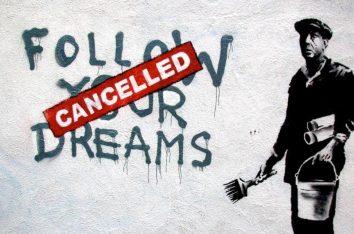On the most recent episode of Misfit Faith I chatted with Jay Bakker who, besides being the son of Jim and Tammy Faye, is a pastor and writer and was one of the first public Christian figures to declare that his church was going to take an affirming stance toward the queer community.
One of the things discussed on the show was the fact that the evangelical position sounds, to LGBT folks anyway, to be quite bigoted and arbitrary. “Why is it,” they ask, “that straight couples are allowed to engage in some of the very same activities that same-sex couples desire to engage in, and for them it’s OK?” (I am thinking specifically of oral and anal sex, in case that wasn’t clear.) Now if the answer is, “Well, it’s OK for them because they’re married,” the response will be, “So can gay people get married?” to which the reply will inevitably be, “No, marriage is between a man and a woman.”
See the problem here? It sure sounds like the LGBT community is being singled out (and quite randomly, since when it comes to this kind of sex there is literally no physiological difference between hetero- and homosexual participation).
Interestingly, the Catholic Church escapes the charge of randomness since, as most people know, it considers any sexual activity that is not potentially procreative to be sinful (so, we earn a point for being fair, but lose two for being utilitarian and boring).
And regardless of whether queer people are being excluded from the Jesus Club out of principle or spite, they’re still being excluded, and they know it.
Perhaps the way forward can be found in the various hints in the New Testament that Jesus considers love and mercy to be more important than other factors like religious observance or following societal norms?
One example is his refusal to pronounce Moses’ sentence over the woman caught in adultery (indeed, he seemed angrier at her accusers than at her — for her he only showed compassion). Another example might be his dismissal of his own culture’s sexual mores by associating freely with prostitutes, as well as his condemnation of the religious establishment for their failure to love the other under the guise of not wanting to spoil their holy reputation.
Sure, these aren’t cut-and-dried affirmations of specific behaviors, but so what? Perhaps they plant seeds that are only lately beginning to blossom (plus, the Bible is not some snapshot of a fixed and final morality anyway, just ask your slaves).
Finally, one of the ways we can demonstrate a genuine, Christ-like love for LGBT folks is by taking the time to listen as they explain to us how our message has made them feel, resisting the need to justify or defend ourselves for not being personally guilty of the bigotry that they have suffered.
After all, if Jesus taught us anything, it’s that sometimes we need to be willing to be nailed to a cross for the sins of our people, even if we don’t personally deserve it.



